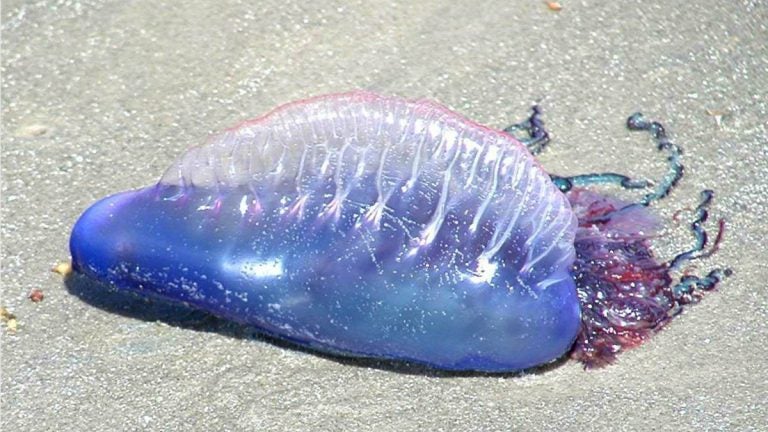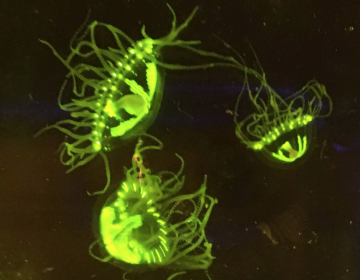Another Portuguese man-of-war influx on Shore beaches likely due to Hurricane Florence
Hurricane Florence, responsible for an historic deluge over the Carolinas and spurring catastrophic flooding, is likely to blame for another Portuguese man-of-war influx.

A stock image of a Portuguese Man-O-War. (Shutterstock photo)
Hurricane Florence, responsible for an historic deluge over the Carolinas and spurring catastrophic flooding, is likely to blame for another Portuguese man-of-war influx on New Jersey beaches, an expert says.
Dr. Paul Bologna, a marine ecology professor at Montclair State University, says he’s received numerous reports of the species washing ashore in recent days.
He says it’s “most likely” from the onshore winds associated with Hurricane Florence, adding that when hurricanes redirect winds they “move lots of these around, too.”
“Please know that they can still give a nasty sting even when washed up,” he warned in the New Jersey Jellyspotters Facebook group that he manages.
The Portuguese man-of-war has appeared on New Jersey beaches for the fourth consecutive season, first spotted this year in early July.
The species is a predatory siphonophore that gets its name from the float, a gas-filled bladder that can grow up to a foot in length and rise out of the water up at six inches. The creature has very long tentacles that can grow up to 32 feet.
According to the South Carolina Department of Natural Resources, the Portuguese man-of-war can inflict “extremely painful stings,” resulting in a severe shooting pain. Treatment advice is available here.
One study found that 50 million people swim in the waters off the United States annually, while an expert noted 50 deaths per year are attributed to jellyfish worldwide.
WHYY is your source for fact-based, in-depth journalism and information. As a nonprofit organization, we rely on financial support from readers like you. Please give today.




![1599px-(Porpita_porpita)_Blue_button_at_Thotlakonda_Beach_06 A blue button jellyfish. (By Adityamadhav83 [CC BY-SA 3.0 (https://creativecommons.org/licenses/by-sa/3.0)], from Wikimedia Commons)](https://whyy.org/wp-content/uploads/2018/10/1599px-Porpita_porpita_Blue_button_at_Thotlakonda_Beach_06-360x280.jpg)